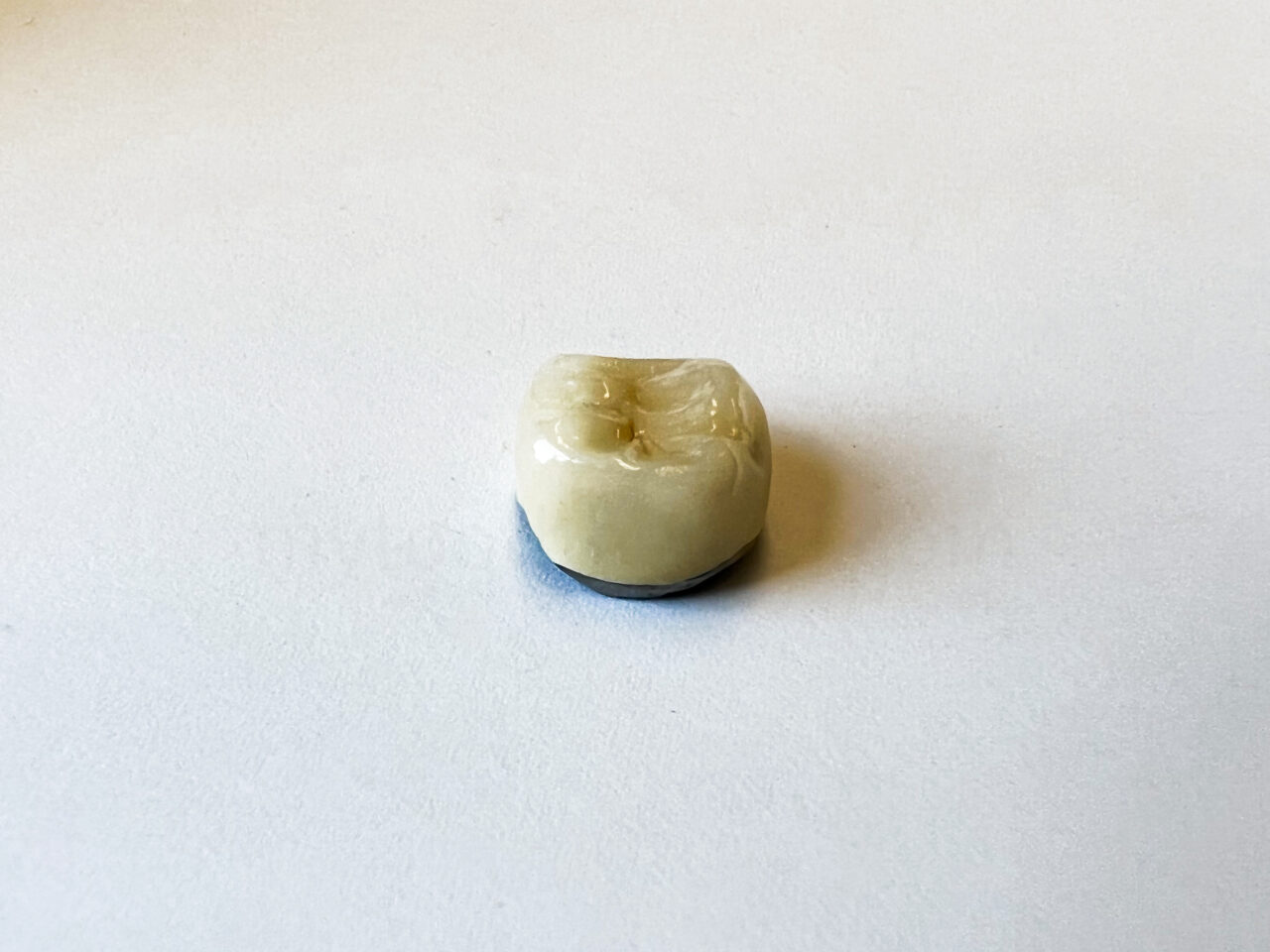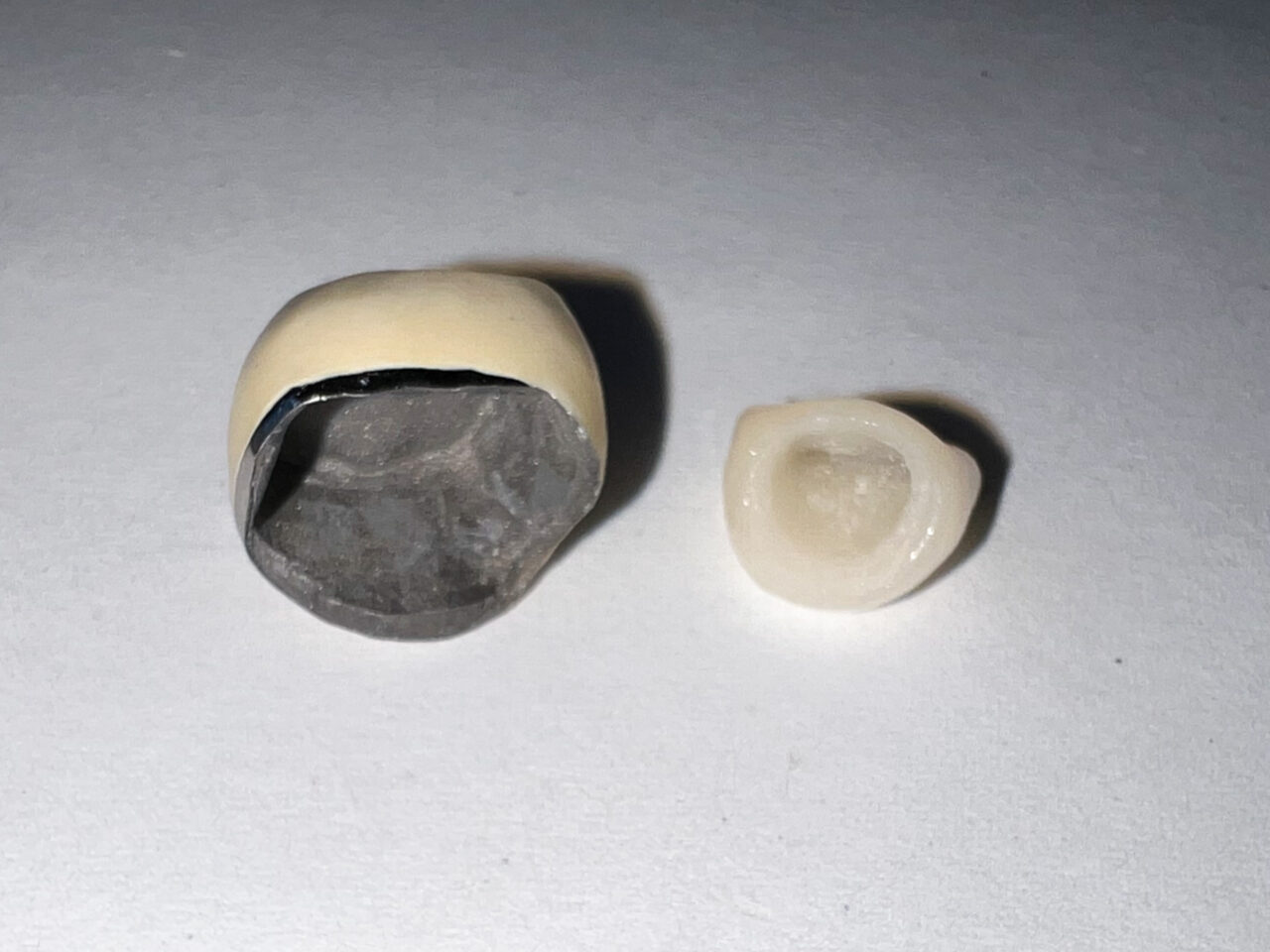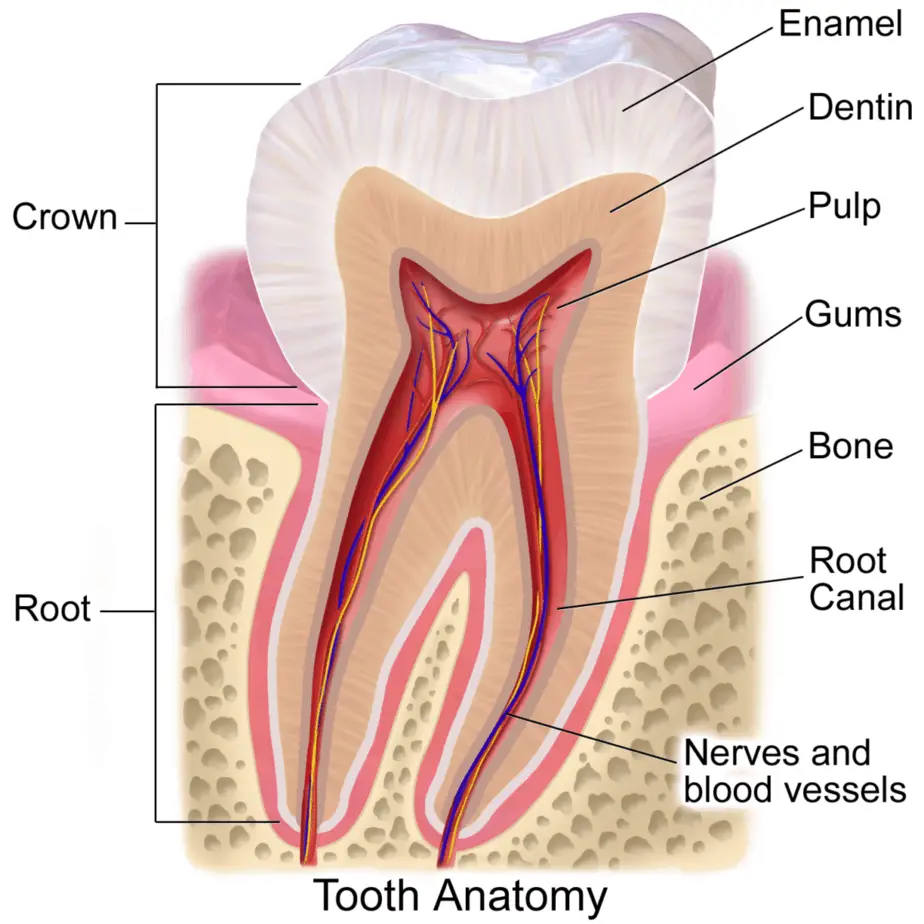
As a dental hygienist, I often get asked how much a root canal and a crown cost, and I understand why. Dental work can be expensive, and it’s important to have an understanding of the cost before you make an appointment, so there are no surprises.
The cost of a root canal and crown can vary depending on the location of the dentist, the type of crown used, the complexity of the procedure, and the lab fee. On average, a root canal and crown can cost anywhere from $1,000 to $3,000, with the average cost being around $1,500 USD.
In this post, I explain further the breakdown of the cost of a root canal and crown, why a crown is needed after a root canal, and how you can still get a cavity on teeth that have root canals and crowns.
The breakdown of a root canal and a crown cost in 2023
It’s important to note that the cost of a root canal and crown can vary widely, even within the same city.
For example, a root canal performed by a root canal specialist (endodontist) will cost much more than having it done by a general dentist.
Because of the varying factors that affect the price of root canals and crowns, it is always best to get an estimate to understand the exact cost.
Understanding the cost will allow you to plan for payment and work with the dental office if you need to make a payment plan.
Root canal costs; general dentist vs. endodontist
Root canal costs depend on how many canals a tooth has. Front teeth have fewer canals than back teeth, so they are cheaper in price. More canals equal a higher price.
As we age, the canals can shrink, making the root canal more difficult to execute, and may require more expertise from a root canal specialist.
A root canal specialist (endodontist) obtains further qualifications after dentistry school and is highly trained and qualified. They have more advanced tools and techniques vs. general dentists and therefore charge a specialist fee.
Also, a root canal is a very long procedure, and a lot of dental procedures are priced out due to the amount of time it takes to complete. The length of time contributes to a higher fee.
Read Now: How Dental Hygienists Clean Teeth! What You Need to Know!
Crown costs; materials, size
Crowns for back teeth are usually larger and will use more material, so can cost more money.
But the biggest cost determinant is the lab fee and the material used.
The type of crown used can also have an impact on the cost, with porcelain and ceramic crowns often costing more than resin or metal crowns. But gold crowns are rising in cost due to the rapid increase in price since mid-2020.
However, the price of the material will not determine which one is best for your circumstances.
If you clench and grind your teeth, metal crowns may be recommended for back teeth.
If aesthetics are important, porcelain, ceramic, or zirconia will be used.

Dental insurance coverage for dental crowns;
When it comes to dental insurance, many insurance plans will cover at least a portion of the cost of a root canal and crown. However, checking with your insurance provider to see what your specific policy covers is important.
Some insurance plans may only cover a portion of the cost, while others will not.
Personal story;
When I was in dental hygiene school, I accidentally bit down on a popcorn kernel, and hairline fractured my tooth. Over time, with clenching and grinding, the hairline fracture got bigger, eventually big enough that bacteria could enter the crack and make their way to the pulp chamber of my tooth, where all the nerves are.
I was in so much pain! Nerve pain is very painful, and I was very fortunate to have a dentist at the time move his day around on a Friday to get me in to do a root canal.
This was 2012, and at the time, it cost me 2200$ CAD to have both the root canal and crown. It was not a great day. I had no insurance coverage and very limited funds. I knew that I needed to save the tooth, to maintain function and aesthetics, so it was a non-negotiable expense.
Read Now: Dental Hygiene: Are X-Rays Needed for Teeth Cleaning?
Crown lengthening surgery; why it is sometimes needed
In unfortunate circumstances, a “crown lengthening” surgery may need to be done so the crown has enough tooth structure to hold onto.
The crown lengthening procedure involves the gum tissue being pulled back and a small amount of bone being removed around the tooth, exposing more structure.
This procedure is required if there is not enough tooth structure for a crown to adhere, resulting in treatment failure. It is the only choice other than extracting the tooth when it is required.
Do I need a crown after a root canal? Medically necessary?
It’s important to consider that the cost of a root canal and crown is a small price to pay for the long-term health of your teeth.
A root canal is a procedure that saves a damaged or infected tooth from extraction, and a crown helps to protect the tooth from further damage. By taking care of your teeth, you can avoid more costly and complicated procedures down the road.
I always stress the importance of getting a crown for a root canal treated tooth because the tooth becomes compromised and more prone to fractures, chips and breaks.
Unfortunately, you cannot save the tooth if the tooth breaks or fractures underneath the gum line.
A crown will hold the tooth together like a helmet, protecting it from fracturing, and breaking. Personally, I would never take the risk of not putting a crown on a tooth that has had a root canal.
But crowns do not protect the teeth entirely. In the constant battle between acid from food and drink and acid produced by bacteria, natural tooth surfaces are still at risk for cavities.
Can you still get a cavity after a root canal?
I have also been asked if a patient has a root canal and a crown. Does the crown protect the tooth from getting a cavity?
A cavity cannot form on unnatural tooth surfaces, but in the case of dental crowns, a cavity can form on the natural tooth surface below the crown.
Read Now: Cleaning Under Your Dental Bridge Made Easy: With Pictures
A root canal treats the inside of the tooth, removing all the pulp chamber that houses the tooth’s nerves. There is still natural tooth surface exposed to the mouth, and any natural tooth structure that is exposed to the mouth can form a cavity.

I always stress to my patients who have dental crowns that their homecare and cavity prevention is very important to ensure the longevity of their dental work.
Decay under crowns is the biggest cause of crown failure!
I have seen many people over the years, and some people can keep their crowns for over 20-30 years with proper care. Whereas I have seen other people have their crowns fail after a couple of years because of their diet, lack of flossing and preventative care.
However, there are other factors that can contribute to tooth decay formation, even if your home care is perfect. For patients who suffer from this, we closely examine what we can do to prevent cavities from forming.
Thank you for reading, and I hope I have helped you find the information you were looking for!
Happy smiling!
Holly 🙂

